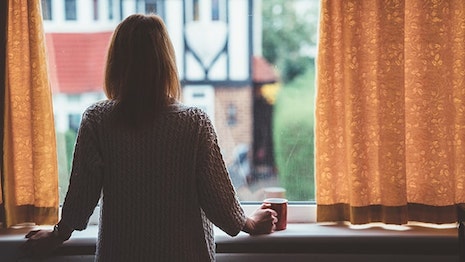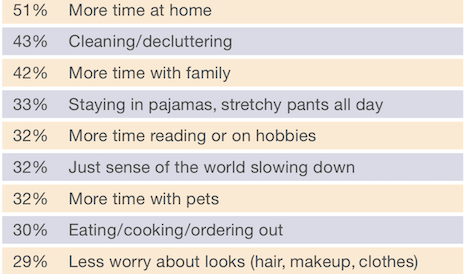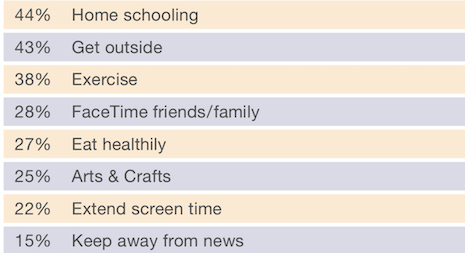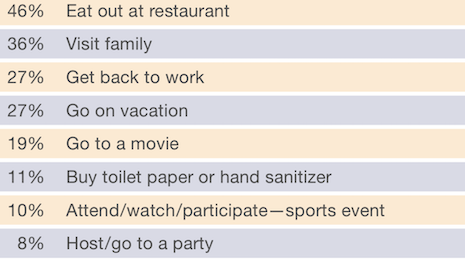 U.S. consumers see window of hope despite ongoing hardship over COVID-19 lockdowns. Image credit: Ipsos
U.S. consumers see window of hope despite ongoing hardship over COVID-19 lockdowns. Image credit: Ipsos
Most U.S. consumers are trying to make the best of their situation during lockdowns and are hopeful that life will return to normal this summer. Seventy percent of Americans said they have reached out to a friend, neighbor or loved one to help during the crisis, according to a new report from market research firm Ipsos’ North America unit Omnibus called “Hope Shines in Dark Times.” "People aren’t necessarily feeling more positive these days, but they are finding ways to keep their spirits up during these uncertain times," said Chris Jackson, senior vice president of public affairs and head of public polling at Ipsos, Washington.
 How consumers are spending their time in lockdown. Image courtesy of Ipsos
How consumers are spending their time in lockdown. Image courtesy of Ipsos
 How families are spending their days in coronavirus lockdown. Image courtesy of Ipsos
How families are spending their days in coronavirus lockdown. Image courtesy of Ipsos
 What people are excited to do after coronavirus lockdown. Image courtesy of Ipsos
What people are excited to do after coronavirus lockdown. Image courtesy of Ipsos
"Given the unprecedented nature of both the public health crisis and the subsequent shock to the economy, we can’t say for sure how lifting lockdowns will impact the economy," Mr. Jackson said.
That being said, Americans seem eager to resume some of the consumer activities they engaged in before coronavirus.
Forty-six percent of people look forward to eating out at restaurants and about a fifth (19 percent) are look forward to traveling, while only 11 percent are looking forward to going to the movies.
The economy will determine whether or not consumers will return to purchasing luxury goods.
Based on Ipsos research during the Great Recession, luxury spending was initially slow to stop and slow to start up again once the economy started to recover.
"Some sectors were harder hit than others, such as international travel, while other saw less of a downturn, such as home decorating and remodeling," Mr. Jackson said.
"Still, the current situation is unprecedented in modern American history, and it is crucial for brands to be connecting with their customers to gauge how their spending intentions shift with the evolving situation," he said.
Please click here to access the PDF of Ipsos' "Hope Shines in Dark Times" report
